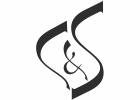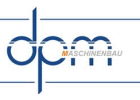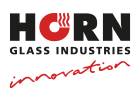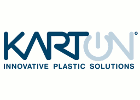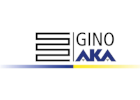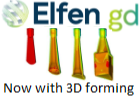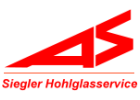There are two major challenges that all industrial sectors must face now and in future – and this includes the glass industry: increasing energy efficiency and reducing emissions across the board.
Ambitious efforts are underway, and RATH is intensively supporting its customers. Be it innovative products for refractory linings or ceramic hot gas filter elements to filter particle-laden industrial flue gases: RATH attaches great importance to continuous research and development. A recent example of this: RATH developed a new, advanced feeder expendables series, which stands for even better product quality and longer service life.
With more than 130 years of experience, RATH is regarded as a competence leader in the refractory sector. Its customers benefit from the widest range of products and service available on the market, coupled with extensive, industry-specific expertise – which also applies to the glass industry: The specialists at RATH have the required in-depth industry knowledge and understanding of the specifics of glass processing. RATH´S precision-crafted refractory products are designed for a wide range of applications, including container glass, float glass, C-glass, E-glass, and tableware. Including the original Emhart Glass designed feeder expendables and refractory formulas, RATH offers the complete range of highest quality refractory materials for the entire glass manufacturing process. Only the best quality high-purity raw materials are used for all of RATH´S refractories, designed to achieve predictable density and resistance to erosion and corrosion.
New, optimized feeder expendable series
The further development of refractory compositions is a challenge that RATH is taking on with great commitment which is also proven by the new RATH product series. “The new FOURATH 4xx feeder expendable series is based on an optimized formulation which has been exclusively developed and produced by RATH”, says Robert Nusszer, Managing Director of the Sales Unit Glass at RATH. “The product has been put through its paces in our laboratories and has successfully passed the first glass factory trials in the last 1.5 to 2 years.”
From improved crack and thermal shock resistance to longer service life
While the previous 3xx mixes (like 333, 315, 301, 338, 345, etc.) were produced using the slipcasting technique, the new FOURATH 4xx mixes are produced using a so-called hybrid technology: RATH uses the same mold park, but a special vibrocasting technology. “This brings some significant advantages: For example, the new feeder expendable series convinces with improved product quality – due to a more compact mix and better surface quality”, says Robert Nusszer. “We selected the highest quality raw materials in order to keep the impurity level to a minimum, to prevent blister formulation. Furthermore, with the new manufacturing technology we can avoid the additional grinding, e. g. of the tube´s outer surface – thus, we are able to increase the service life of the tube. In addition, we have been able to significantly reduce the drying time of the refractory, which gives us better flexibility in terms of lead times. “The thermal shock resistance has also significantly improved and the risk of cracking has decreased considerably”, Nusszer adds. “Our customers can switch to the new product series immediately: The same part numbers are used as before, only the last three digits will change.”
At the recent glass trade fairs in Düsseldorf and Istanbul, the following products were shown: the already well tested and released 420 (a complementary mix of 333, 315) – tubes, plungers, orifice rings and stirrers as well as the new 473 zirconia inserted spouts. The new fused silica mixes, the drain-cast 457 and the slip-cast 458 were also introduced. These mixes are used in the highest quality glass production, e. g. in melting crucibles, and the 458 is also available, for example, for crown repair of glass melting tanks, as well as suspended brick in the doghouse. “It is a very important step ahead that we have recently resumed the manufacturing of forehearth 333 channel blocks at our US-facility in Owensville, as well as producing the first front channel blocks for trial purposes in mix 420, responding to serious market demand. Furthermore, at our Budapest facility, we have set up a significant production capacity for producing high-alumina channel blocks”, Robert Nusszer adds.
Doubling of the production capacity for hot gas filter elements in Meißen
Recently, RATH has doubled its production capacity for both catalytic and non-catalytic hot gas filter elements at its Meißen production facility in Germany. As the only remaining European manufacturer of filter elements, RATH can produce 25,000 pieces of filter elements per year up to a length of six meters from its own fiber, which is also produced by RATH, at its production facility in Mönchengladbach (Germany). The new production line is already in operation and running at the highest efficiency level.
For many years, the company has been developing innovative ceramic hot gas filter elements that make it possible to filter particle-laden industrial flue gases at temperatures up to 1000 °C and reduce emissions of nitrogen and sulfur oxides, as well as reduce the emission of fine particulates. Since 2016, all resources, capabilities and expertise in hot gas filtration have been pooled in the Meißen facility. This research and production site of the company is home to cutting-edge facilities for the manufacture of RATH´S FILTRATH® non-catalytic and FILTRATH®CAT catalytic filter elements. The latter were developed for pollutant emission control: These rigid yet highly porous and catalytically coated ceramic filter elements are used for multiple pollutant control of (fine) dust, acid gases, dioxins and nitrogen oxides in hot gas flows (at temperatures between 250 ° and 420 °C) and can easily replace conventional textile filters.
The filtration business line is one of the business lines that has seen a significant growth within the RATH Group. “It has great potential since the glass industry has to drastically reduce its footprint on environmental pollution and the greenhouse effect worldwide. RATH is committed to advancing environmental protection and helping its customers in the glass industry achieve their ambitious environmental goals. Thus, RATH continuously develops and invests in this technology”, Robert Nusszer summarizes.




